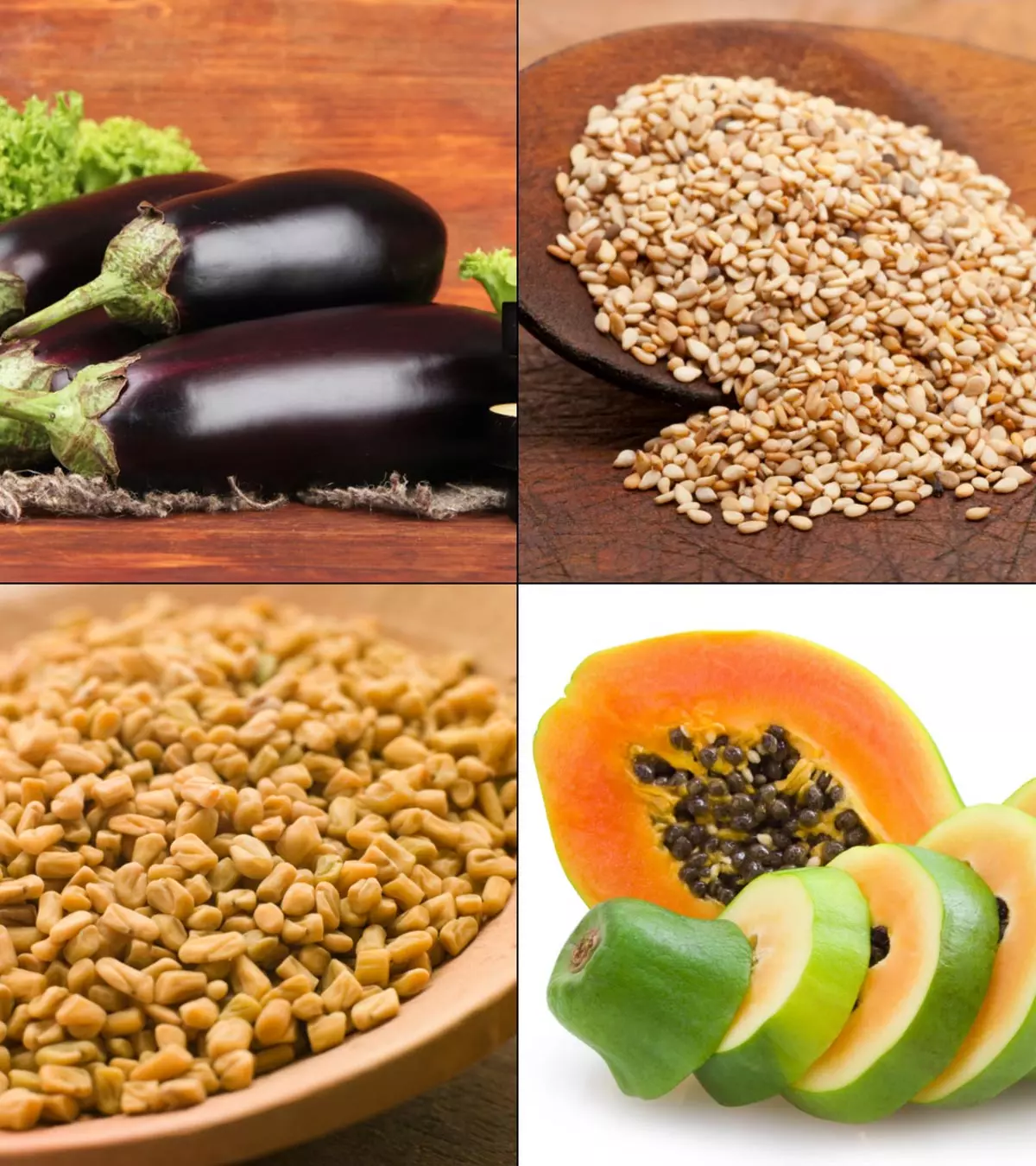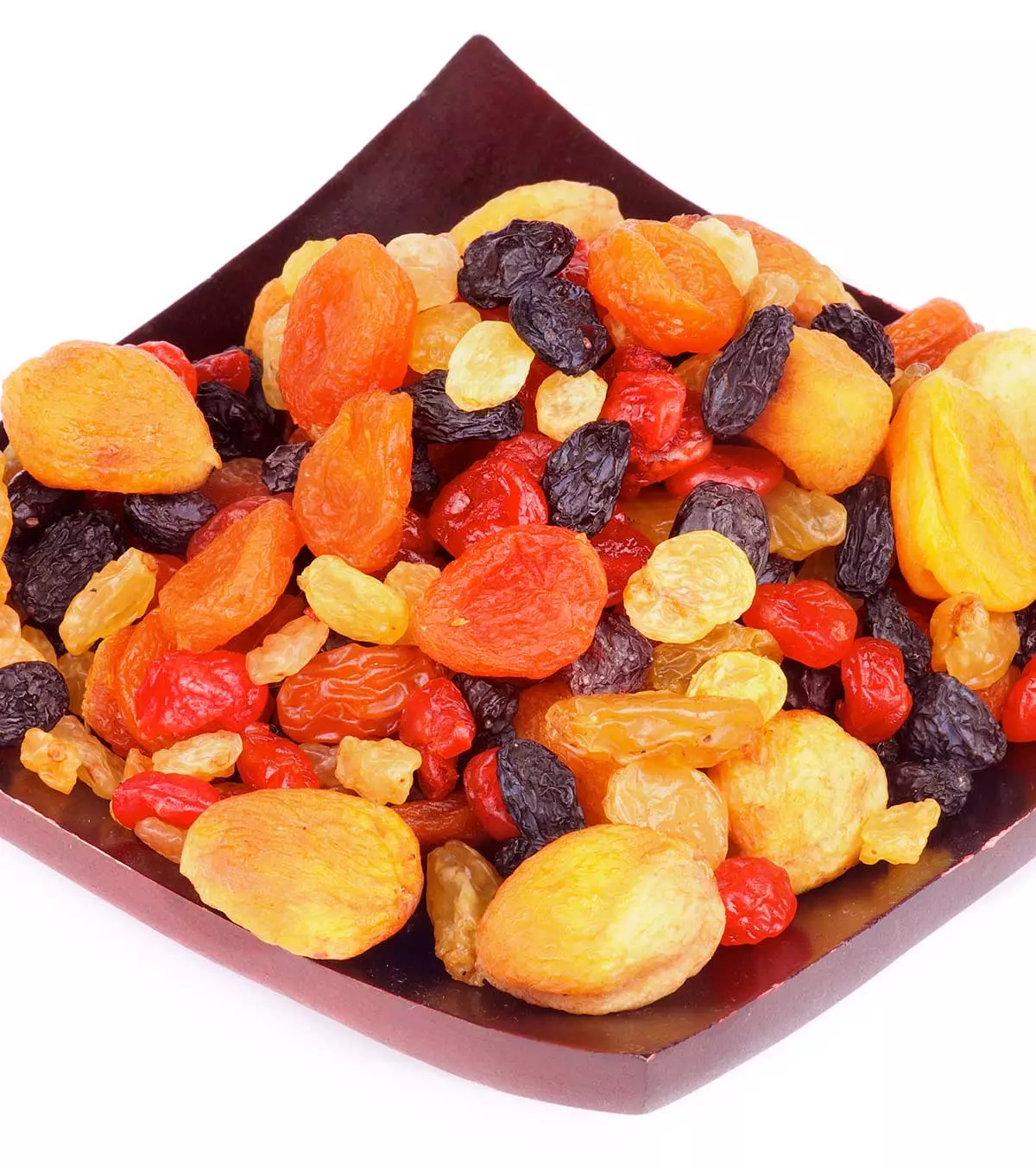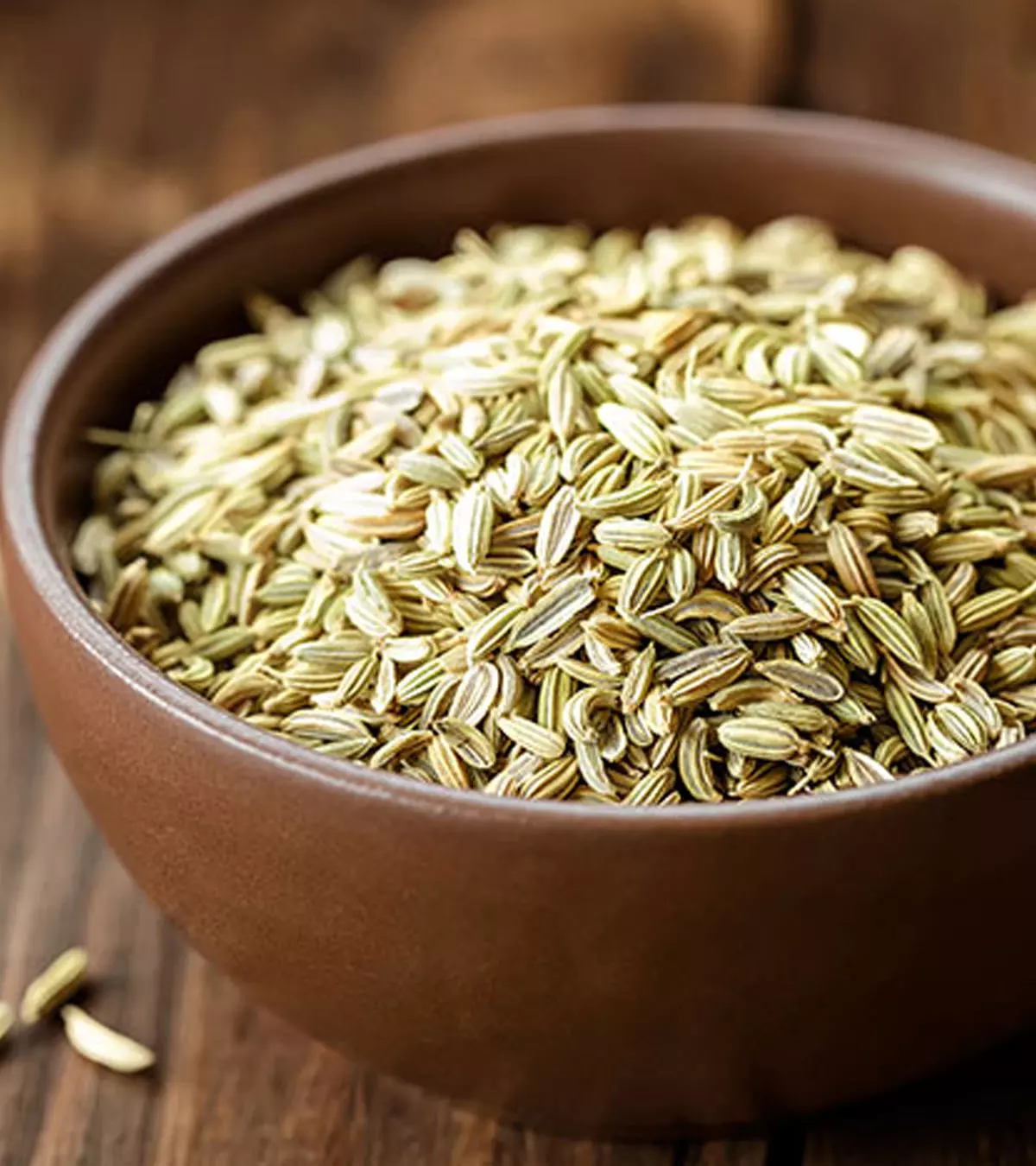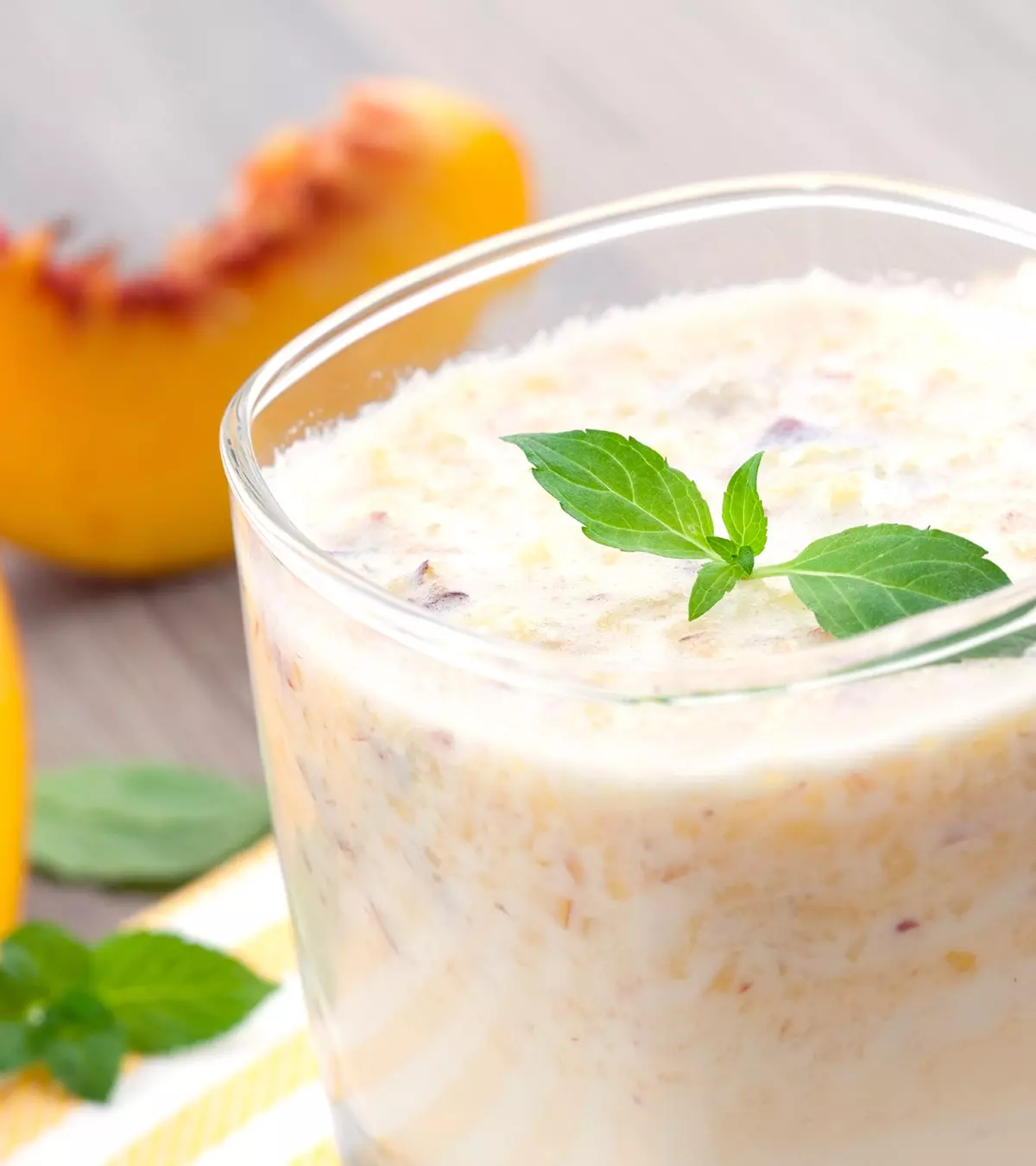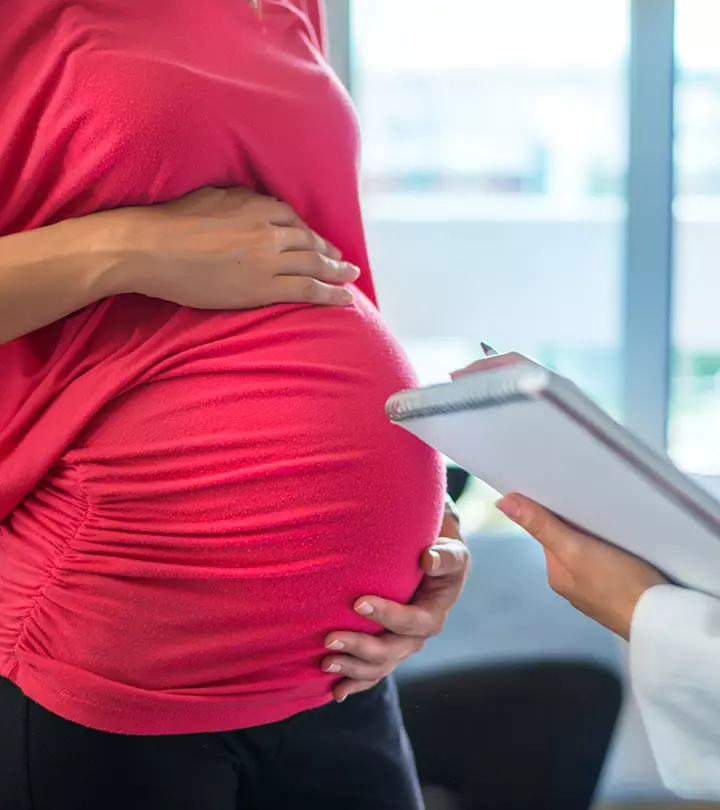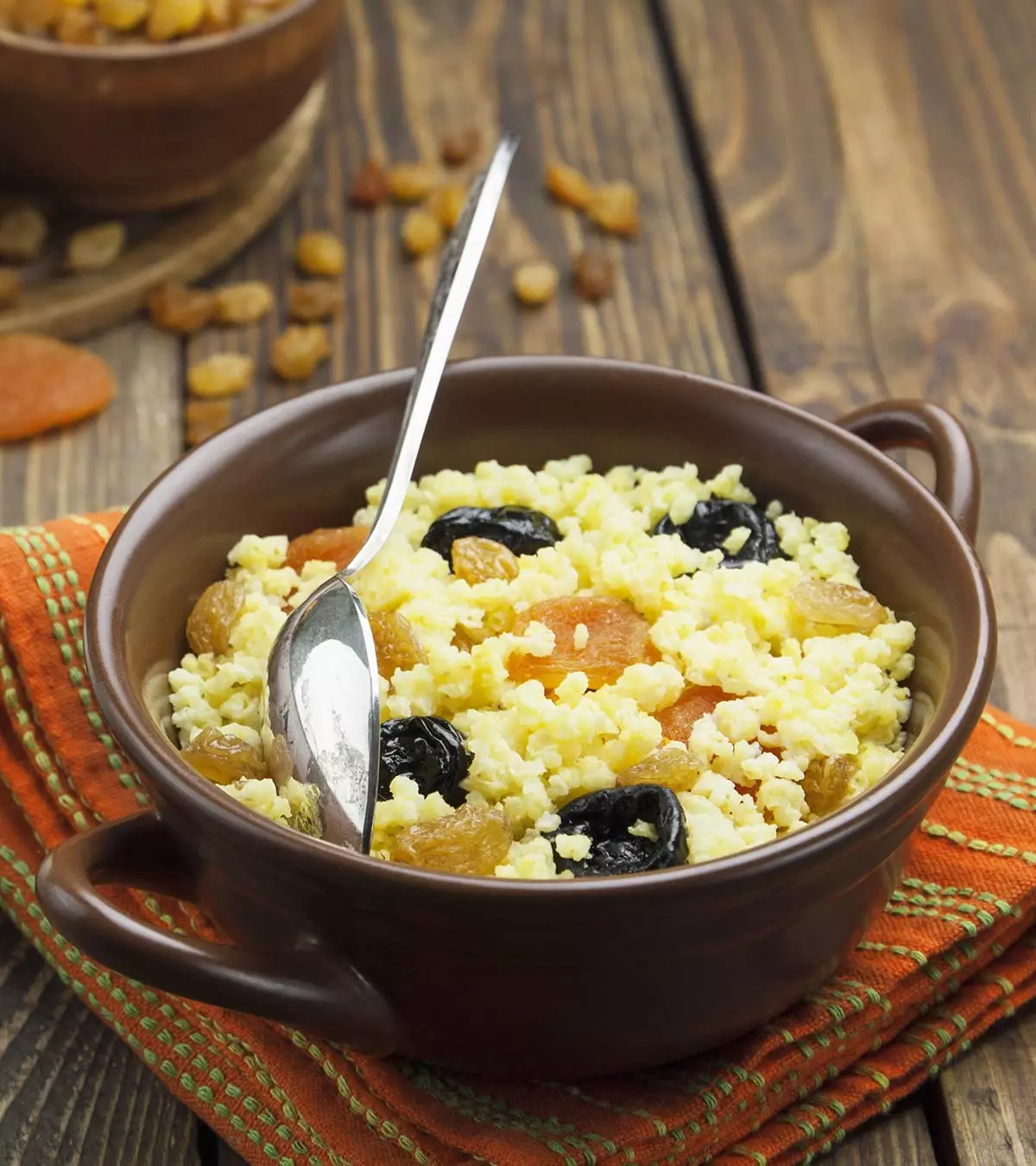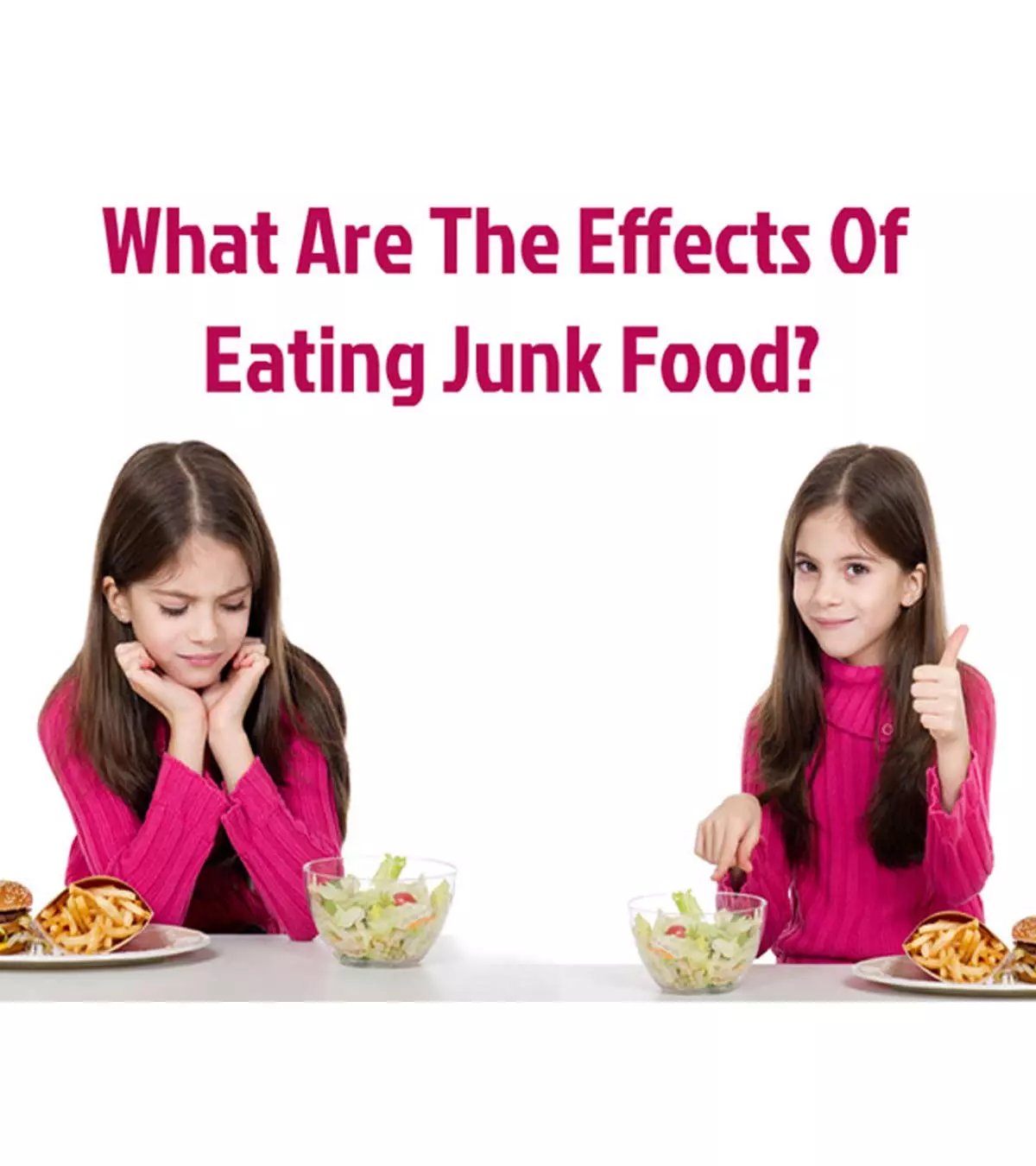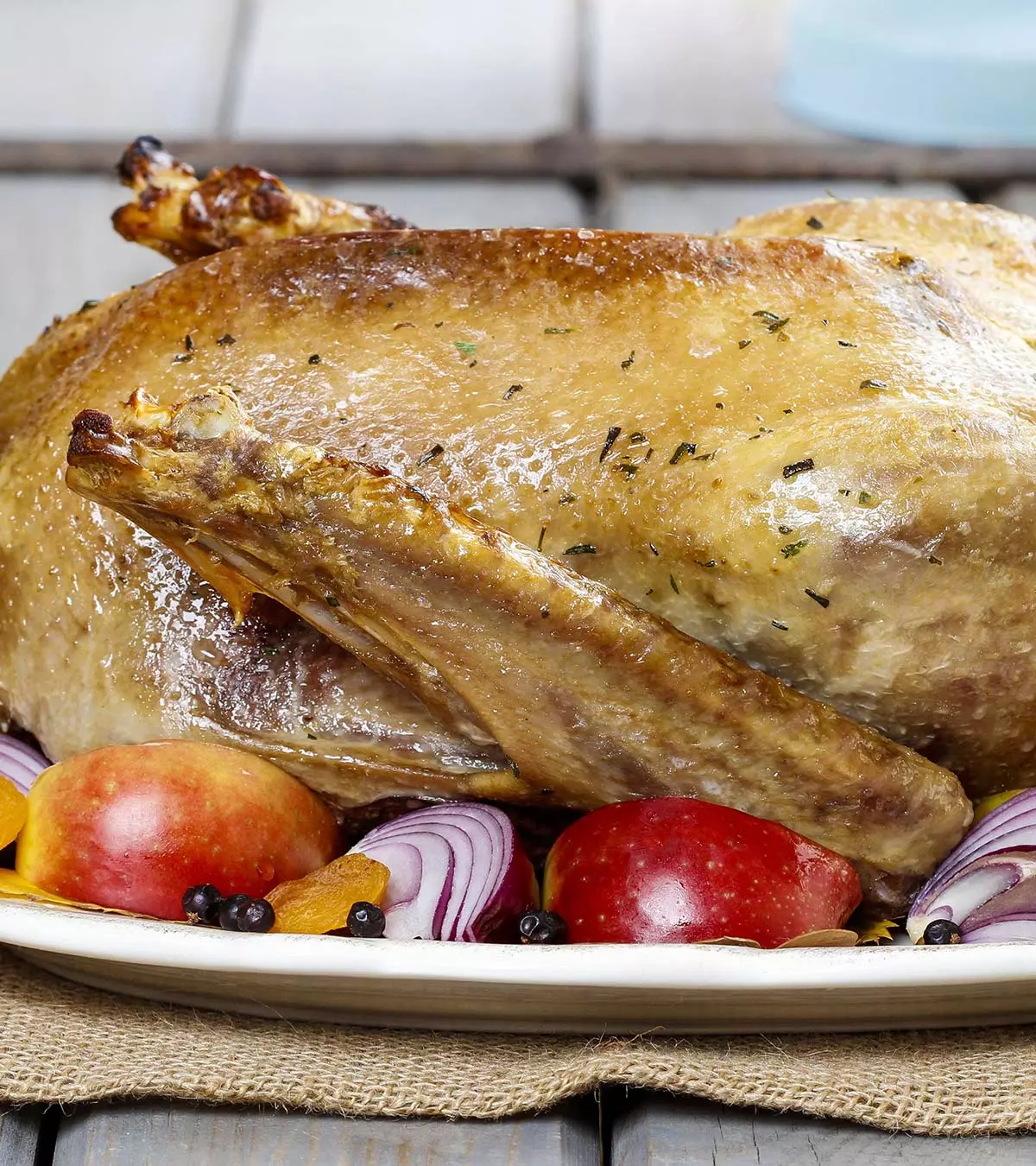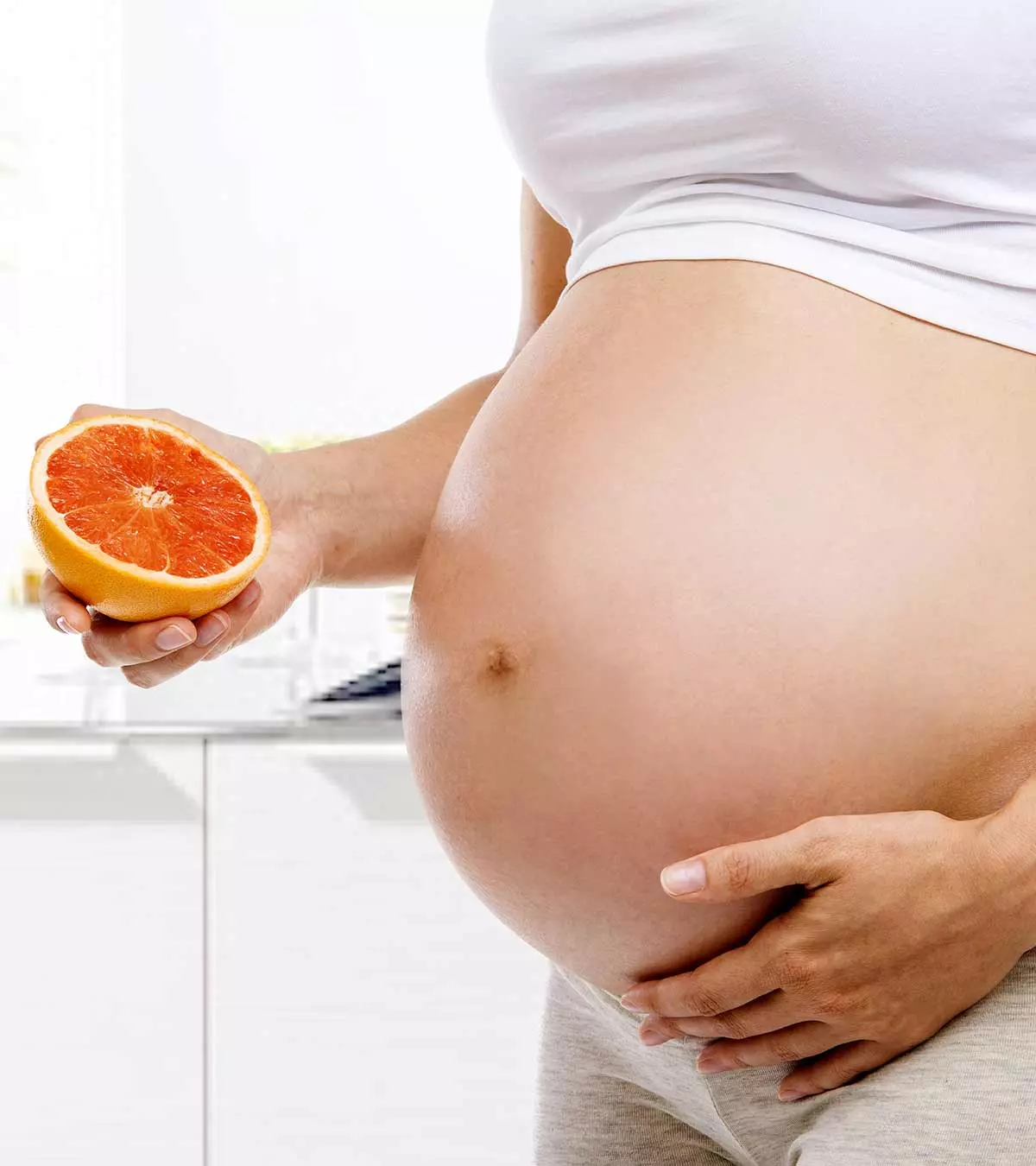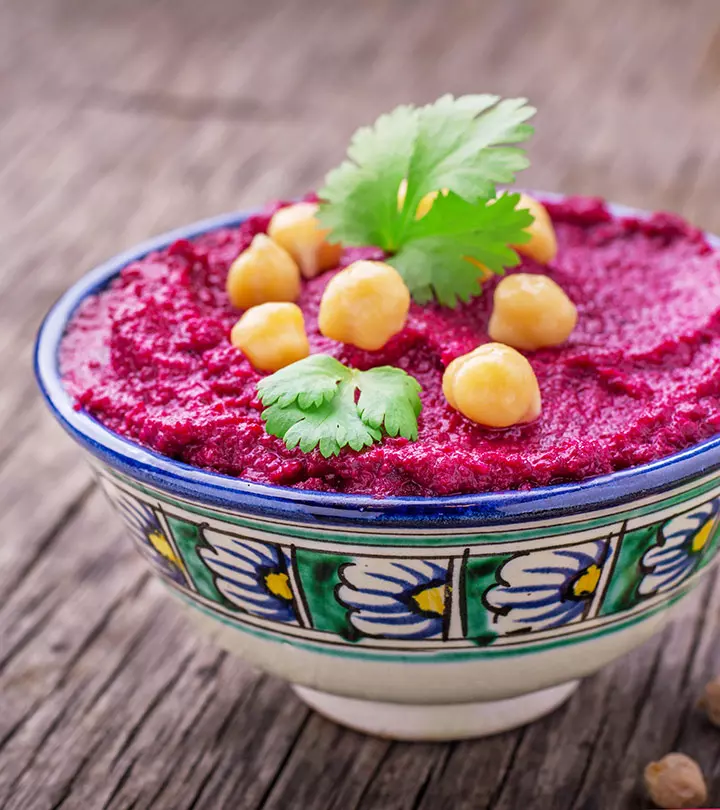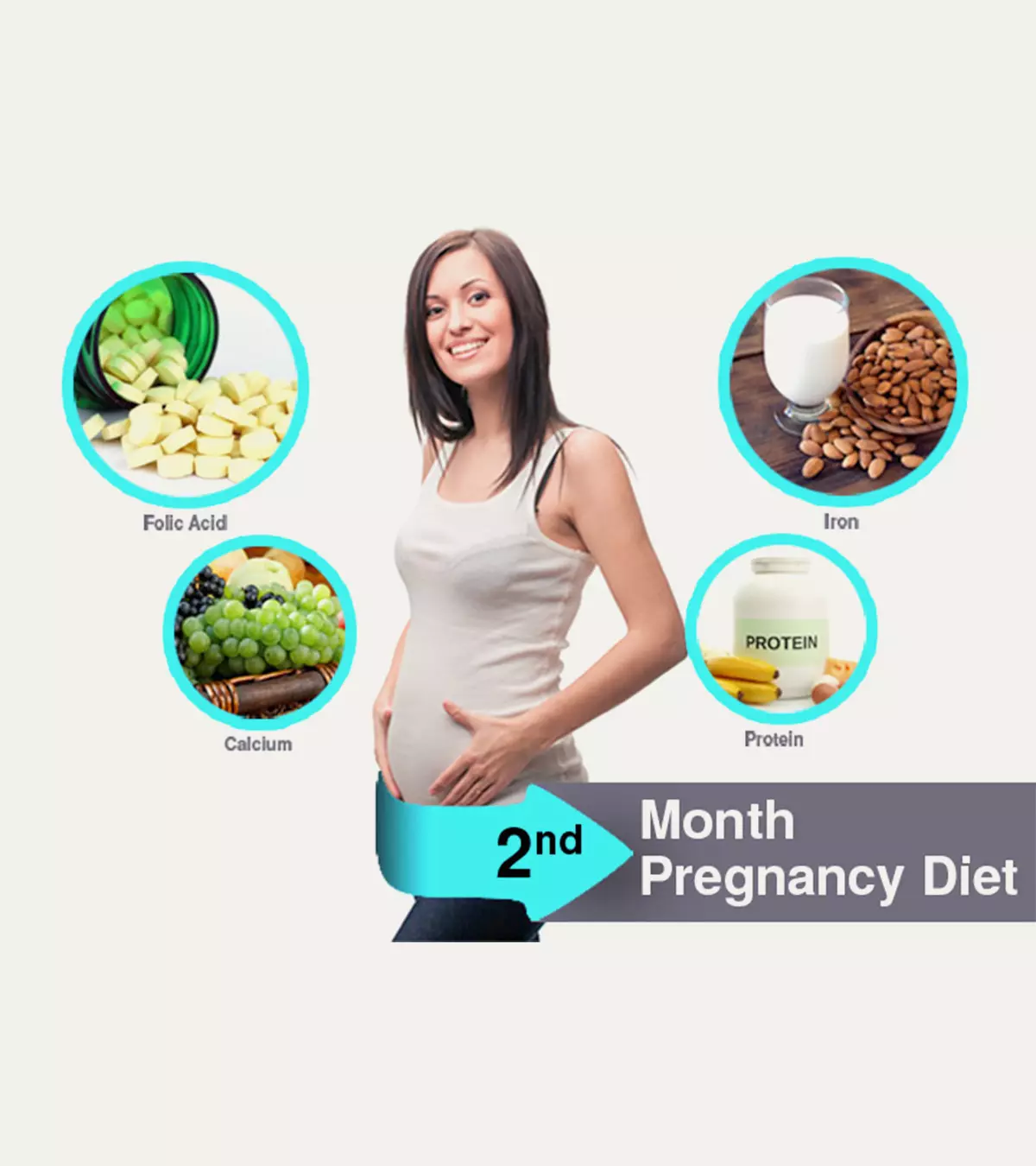
Image: Shutterstock
Your 2nd-month pregnancy diet should include essential prenatal nutrition. The foods you eat during this crucial stage should help in the healthy growth and development of the baby. Besides, your meals should provide you with the energy to help manage your pregnancy symptoms.
Read on as we provide you with some information to help you plan your diet in your second month, including the foods you should stay away from.
Key Pointers
- A healthy diet with balanced protein, vegetables, grains, and fruits is crucial during the second month of pregnancy for proper fetal growth and development.
- Pregnant women should avoid consuming raw or processed foods, high-mercury fish, and alcohol, and limit the consumption of caffeine and sugar during this month.
- Staying hydrated and not skipping meals is vital for pregnant women and the developing baby.
- Expecting mothers should regularly consult their doctor and follow their advice to meet their nutritional requirements.
Foods To Include In The Second Month Of Pregnancy
Here are the essential foods that you must include in your diet during the second month of pregnancy:
1. Calcium is an important nutrient for developing strong bones, teeth, and muscles in the fetus. It is also essential for the proper functioning of the fetal heart and nerves. Foods to include:
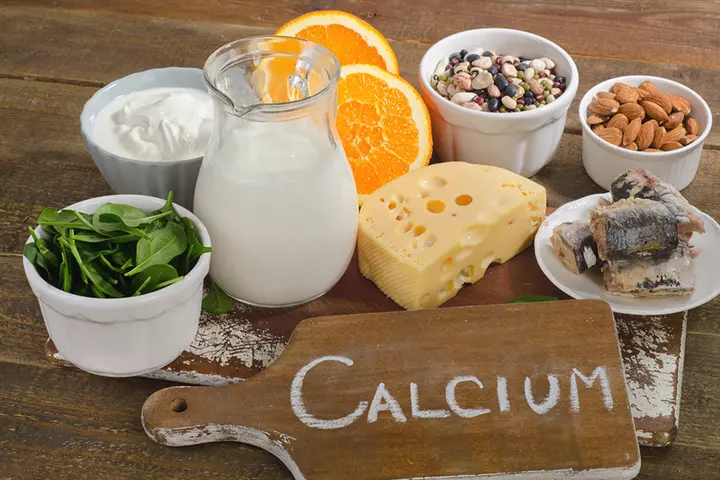
Image: Shutterstock
- Cheese
- Milk
- Yogurt
- Broccoli
- Tofu
- Kale
- Nuts.
 Quick fact
Quick fact2. Folic acid is essential to prevent neural tube defects in the baby and also helps in blood formation. Foods include (1):
- Green leafy vegetables
- Avocado
- Legumes
- Lentils
- Orange juice
- Fortified bread
- Beans
- Cereals
3. Iron-rich foods are essential for improving the hemoglobin levels to meet the blood required by the placenta and the fetus. Foods include:
- Leafy green vegetables
- Jaggery
- Clams
- Lean meat
- Beef
- Seafood
- Cereal
- Bread
- Pasta
- Nuts
- Beans
- Dried fruits
 Did you know?
Did you know?4. Fiber-rich foods help alleviate constipation and promote smooth bowel movement during pregnancy. Foods include:
- Oats
- Whole grain bread
- Legumes
- Fruits
- Vegetables including sweet potatoes
5. Iodine is necessary for the fetal brain and nerve development. Foods include:
- Cheese
- Milk
- Fish
- Fortified bread and cereal
- Iodized salt
- Yogurt
6. Protein is essential for fetal tissue development and also helps in repairing the breast and uterine muscles.
The foods include:
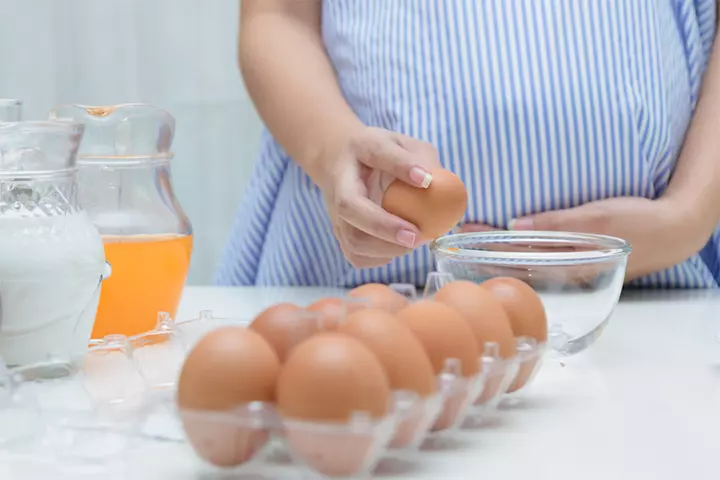
Image: Shutterstock
- Fish
- Lean meat
- Dairy
- Eggs
- Legumes
- Seeds
- Nuts
7. Vitamin B12
is essential for cell division and folate metabolism during pregnancy (2). Foods include (3):
- Meat
- Fish
- Eggs
- Poultry
- Milk and milk products
8. Vitamin D
is essential for the skeletal development of the fetus. Foods include:
- Vitamin D-fortified milk
- Salmon
- Tuna
- Mackerel
- Eggs
- Mushrooms
- Cereals
 Quick fact
Quick fact9. Vitamin C is essential for the teeth and bone development in the baby and is present in fruits and vegetables. Include foods like:
- Yellow and red color bell peppers
- Cabbage
- Broccoli
- Strawberries
- Citrus
- Brussels sprouts
10.Omega-3 fatty acids
are healthy fats that are vitally important for the development of the fetal brain and retina. Include foods like:
- Fish
- Fish oil
- Flaxseed
11. Carbohydrates
in any form, whether simple or complex carbohydrates, are the primary source of energy to the body. Include foods like:
- Whole grains
- Muffins
- Yogurt
- Bread
12.Minerals
such as copper, zinc, magnesium, and selenium aid in pregnancy complications like poor fetal development. Include foods like:
- Spinach
- Nuts and seeds
- Legumes
- Seafood consisting of low-mercury fish
Recommended Daily Intake Of Nutrients During Pregnancy (4)
| Nutrients | RDA (Recommended daily allowance) |
|---|---|
| Calcium | 1300mg (age 14-18 years) 1000mg (age 19-50 years) |
| Iron | 27mg |
| Vitamin C | 80mg (age 14-18 years) 85mg (age 19-50 years) |
| Vitamin D | 600 IU |
| Folic acid | 600µg |
| Vitamin B12 | 1.9mg |
| Protein | 60gm (5) |
| Iodine | 220mg (through iodine supplements that are taken in the form of potassium iodide) (6) |
While having healthy food, you should also abstain from eating certain foods that could harm you and your baby.
Foods To Avoid In The Second Month Of Pregnancy
Avoiding certain foods during pregnancy is crucial for safeguarding your baby’s health, as they can cause complications and affect fetal development. Here are some foods that you must avoid during the second month:
- Avoid undercooked meat and poultry.
- Do not eat raw eggs as they may contain salmonella.
- Avoid soft cheeses like brie, ricotta, Camembert, blue cheese, and feta (7).

Image: Shutterstock
- Raw bean sprouts, pre-prepared pâté, sandwich meats, and salads must be avoided as they may contain listeria bacteria.
- Avoid unpasteurized juice, cider, and milk as they may contain E.coli or listeria bacteria (1).
- Avoid swordfish, shark, tilefish, and king mackerel as they contain a high level of mercury. Also avoid fish like freshwater salmon, bass, bluefish, trout, pike, and walleye that contain high levels of PCB (polychlorinated biphenyls) (8).
- Avoid luncheon meat and cold hotdogs as they may contain listeria.
- Do not eat raw fish like sushi and sashimi.
- Avoid consumption of alcohol as it may affect fetal growth.
- Avoid too much caffeine as it can lead to miscarriage (9).
- Avoid fruits like pineapple and raw papaya, which are known to induce contractions (10).
- Limit the intake of foods such as pastries, cakes, pies, processed meats, pizza, commercial burgers, dark chocolates and fried foods that contain high saturated fats.
- Limit the intake of sweets, energy drinks, and carbonated drinks that contain added sugar.
- Limit the consumption of caffeine to not more than 200-300m or 2-3 cups of coffee a day (11), as it can cause miscarriage. Consuming one to two cups of herbal tea in a day is considered a safe option.
Read on for some more useful tips to follow in the second month of pregnancy.
Second-Month Pregnancy Diet Tips
Here are some diet tips to follow during the second month of pregnancy:
- Do not skip a meal or starve yourself.
- Avoid oily and spicy food as it can aggravate heartburn.
- Take a lot of fluids.
- If you have morning sickness, then munch on crackers.
- Abstain from street food.
- Make sure to clean the fruits and vegetables properly before consuming them.

Image: Shutterstock
Frequently Asked Questions
1. Is cucumber good for pregnancy?
Yes, vegetables like cucumber provide vitamins, minerals, and fiber that can help digestion and prevent constipation in pregnancy (15).
2. What should I eat in the second month of pregnancy if I have nausea?
When you are 2 months pregnant, bland and easy-to-digest food can help with nausea. In addition, high-protein foods such as chicken and peanut butter, cold beverages and snacks, ginger, carbonated drinks, herbal teas and broth, fruits and vegetables high in water content, citrus fruits, peppermint, foods high in vitamin B6 (salmon, avocados) may help you feel better (16).
3. Which foods are a good source of vitamin B?
An ideal diet chart for pregnant women should include different types of vitamin B, and they are found in a variety of foods. Each type supports different physiological functions of the body. For example, bananas are rich in vitamins B1 and B6, while B12 can be found in animal products such as meat and cheese (17).
4. Why do I need B vitamins during the second month of pregnancy?
B vitamins play an important role during pregnancy as they provide energy, promote the development of the fetus, enhance vision, and help build the placenta (18).
In your 2nd-month pregnancy diet, include the essential foods enriched with nutrients such as calcium, folic acid, dietary fiber, and vitamins in the recommended serving size. Further, instead of giving in to unhealthy food cravings, opt for healthy alternatives. You should also exercise caution when eating specific foods and fruits and restrict or avoid junk food, sweets, caffeine, energy drinks, and carbonated beverages. Sticking to homemade foods, plenty of water intake and fluids, and avoiding skipping meals is recommended during pregnancy.
Infographic: Foods To Include And Avoid In The Second Month Of Pregnancy
Eating a healthy and balanced diet during pregnancy is always important during the first trimester. During this time, consuming a variety of fruits, vegetables, whole grains, and lean proteins is recommended. The following infographic contains a list of foods to include and avoid during this period for reference. Read on! Illustration: Momjunction Design Team
Illustration: 2nd Month Pregnancy Diet: What To Eat And Avoid?
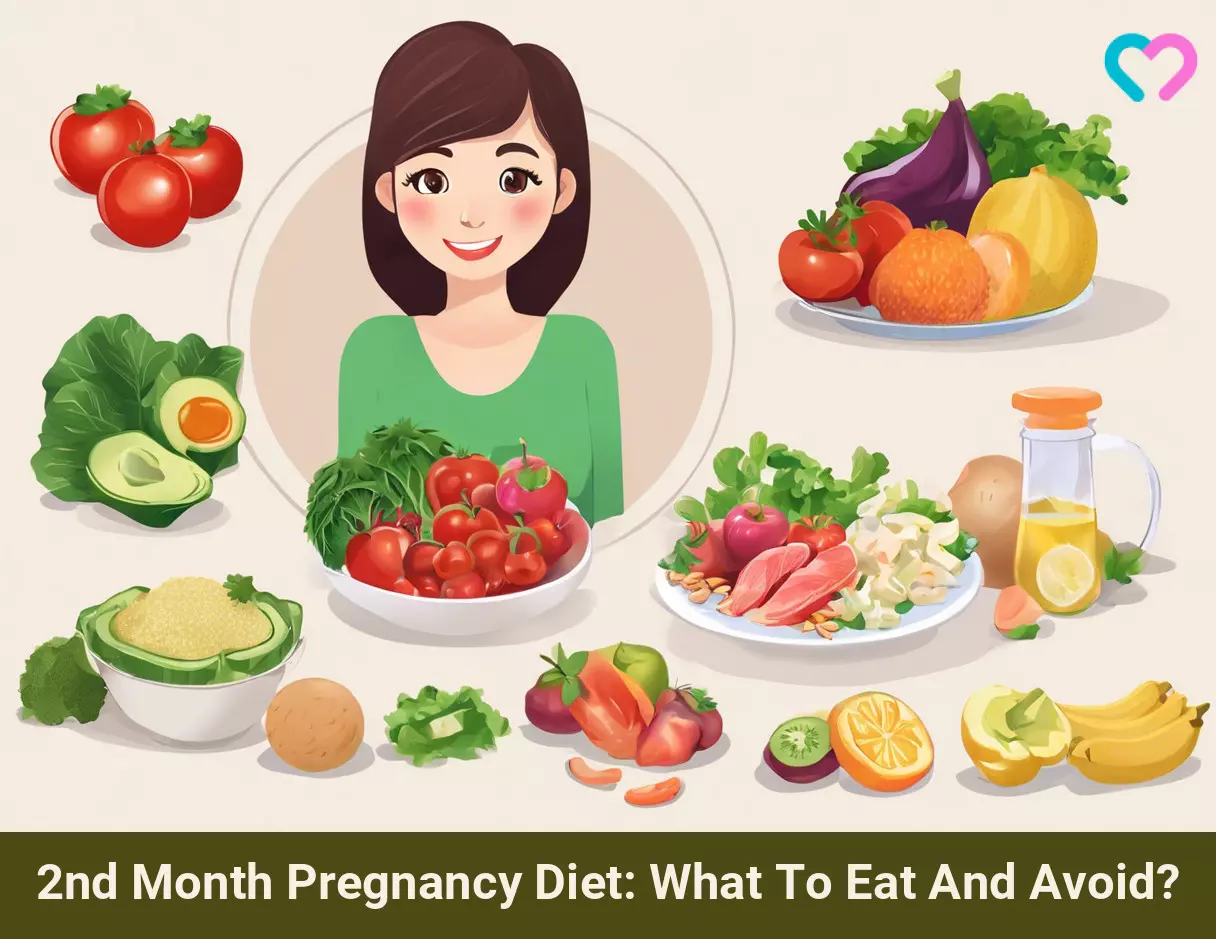
Image: Stable Diffusion/MomJunction Design Team
Eating well during your first trimester is essential for a healthy pregnancy. Learn how to make nutritious meals and snacks to nourish your body and baby.
References
1. Prenatal Nutrition; University Of Michigan
2. H. Van Sande, et al.; Vitamin B12 In Pregnancy: Maternal And Fetal/Neonatal Effects—A Review; Scientific Research Publishing Inc (2006-2015)
3. Vitamin B12; NIH
4. Nutrition During Pregnancy; ACOG
5. Michelle A. Kominiarek, et al.; Nutrition Recommendations In Pregnancy And Lactation; NCBI (2016)
6. Iodine; National Institue of Health
7. Healthy eating during your pregnancy; National Health and Medical Research Council, Australia
8. Pregnancy: Nutrition; Cleveland Clinic (2019)
9. Caffeine; OTIS
10. Ghosh Debosree and Ghosh Suvendu; Forbidden Foods for Healthy Pregnancy; IJSRR (2018)
11. Pregnancy Precautions: FAQs; The Nemours Foundation (1995-2015)
12. Calcium Content of Foods; UCSF Health
13. Iron Rich Foods; American Red Cross
14. Vitamin D supplementation in Pregnant Women; WHO
15. 16. 10 foods that fight nausea during pregnancy; The Mother Baby Centre
17. What Are B-Vitamins?; Eat Right
18. Nutrition During Pregnancy; The American College of Obstetricians and Gynecologists
Community Experiences
Join the conversation and become a part of our nurturing community! Share your stories, experiences, and insights to connect with fellow parents.
Read full bio of Dr. Neha Singh
Read full bio of Sakshi Mishra
Read full bio of Swati Patwal
Read full bio of Dr. Joyani Das








